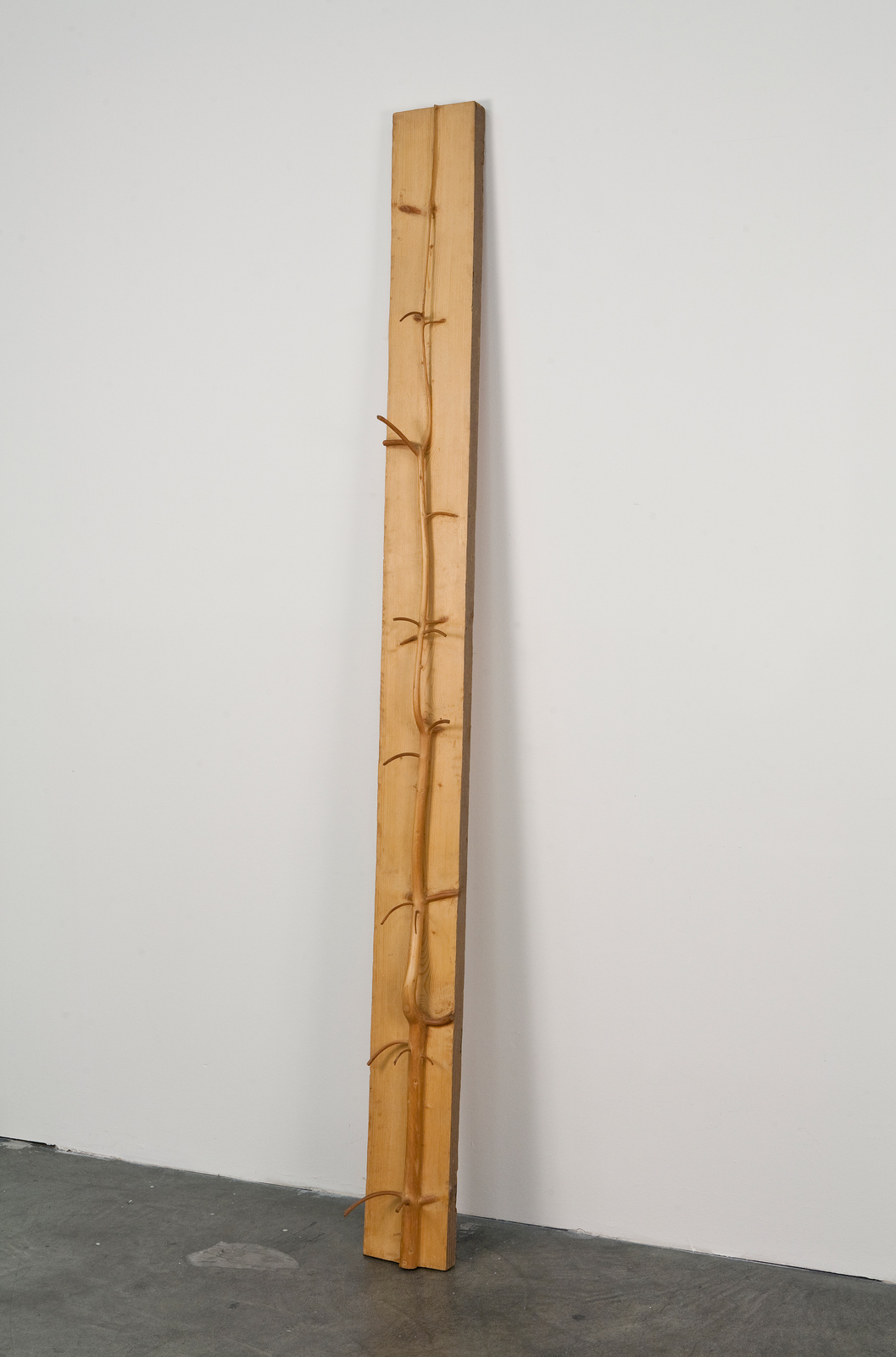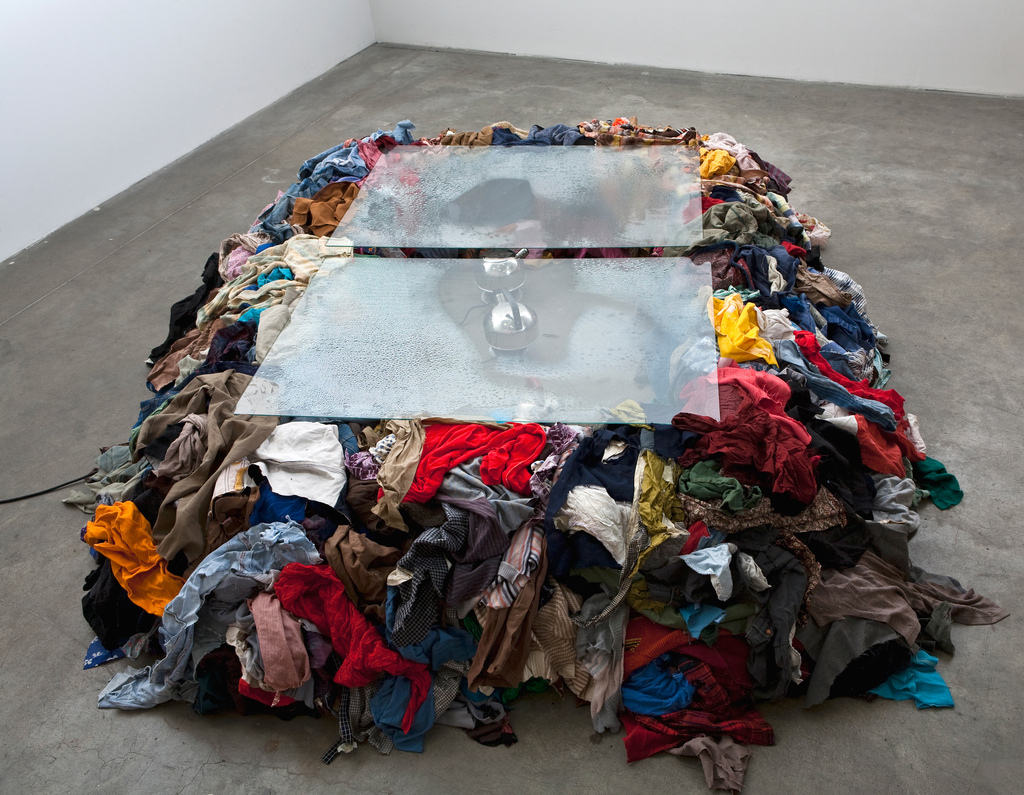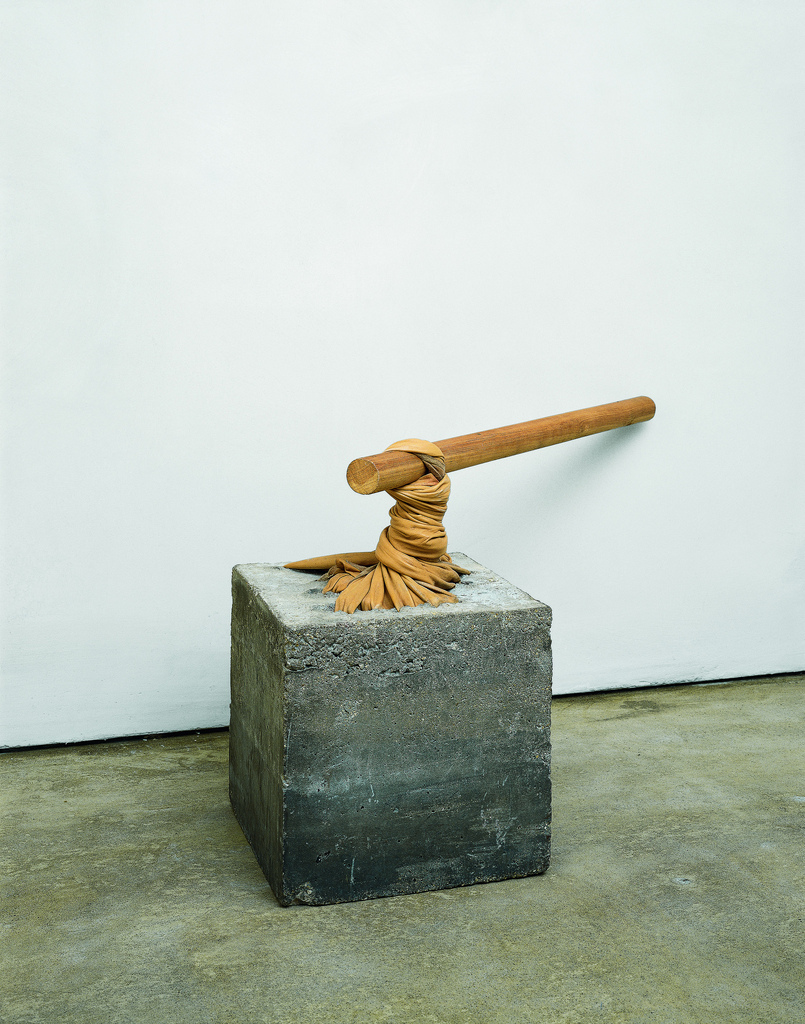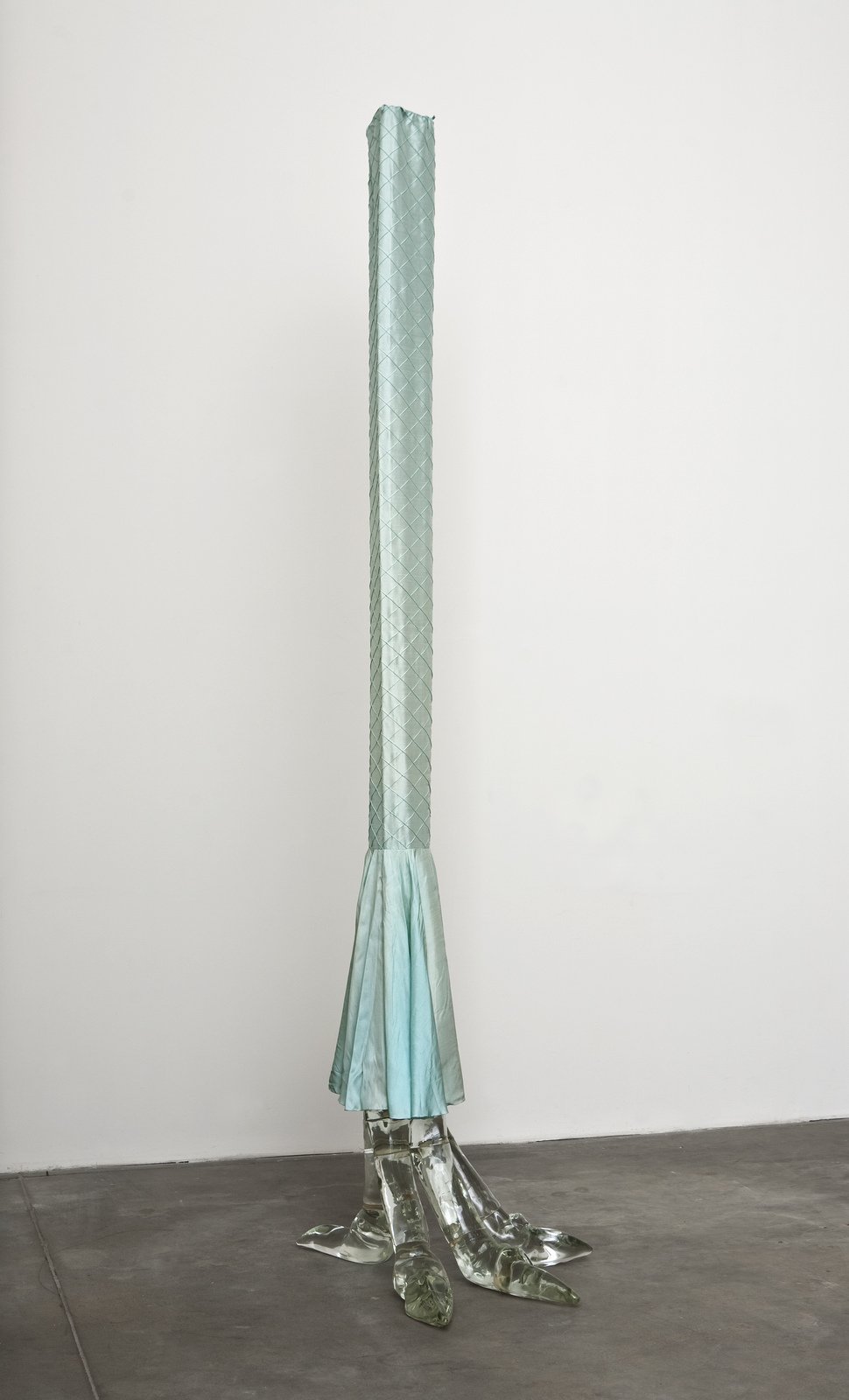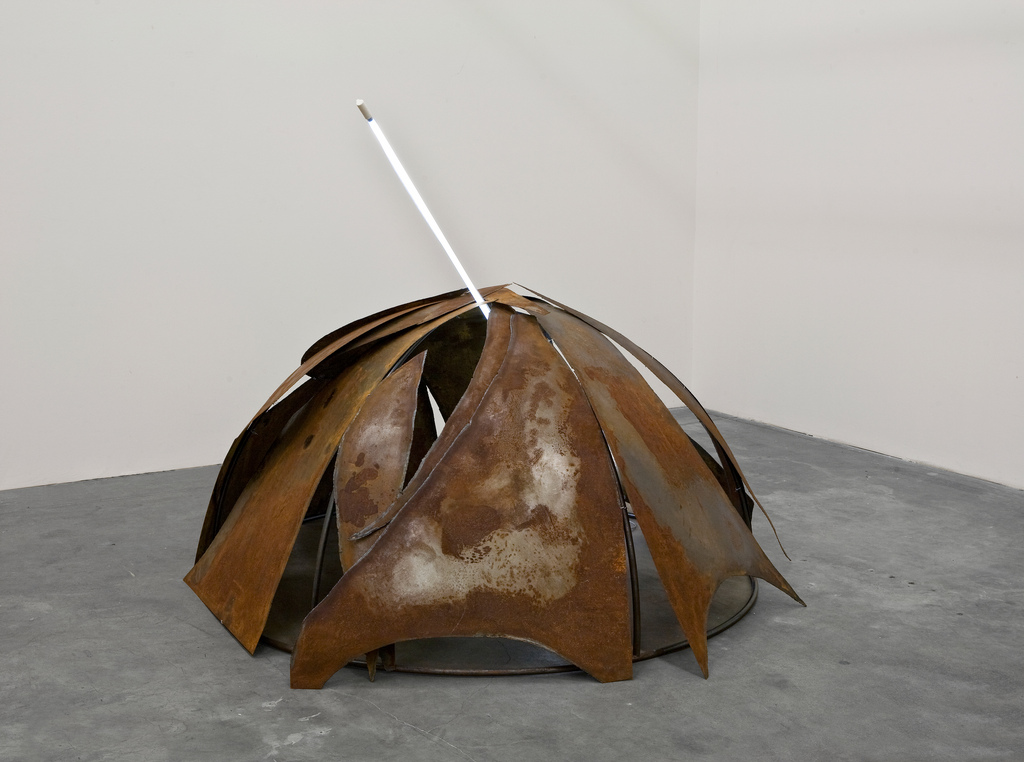
A step back in time-space to Italy during the 1960s would reveal a revolutionary art movement that called into question the institutions of convention, market, and power: Arte Povera. This “poor art” transformed the ordinary, turning found objects into philosophical pieces and throwing the brush and canvas of fine arts in favor of untraditional, yet humble materials. Arte Povera: The Great Awakening, pieces from The Goetz Collection curated by Bernhard Mendes Bürgi at Kunstmuseum Basel, recalls the anarchy. Luciano Fabro’s iconic Piede (foot) stands as a bestial sculptural softened by the scaly fabric, a curious combination of texture and form, while Michelangelo Pistoletto’s Donna Sdraiata (reclining woman) satirizes a common figural model with an altar of crumpled garments. Thought-provoking and candidly forward, The Great Awakening forces one to ponder, once again, the ultimate question: what is art?
